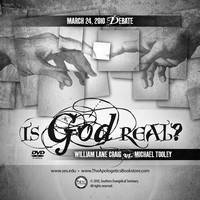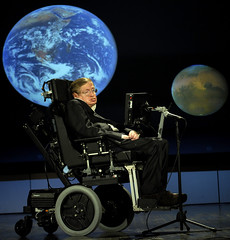Post Author: Bill Pratt
One of the most powerful arguments for God’s existence is the fine tuning argument. Rather than rehearse it here, please read Wintery Knight’s presentation of the argument. Many atheist scholars acknowledge the persuasiveness of this argument (e.g., philosopher Peter Millican did as much in his recent debate with William Lane Craig), although not granting its conclusion.
The most common escape hatch that atheists scurry through when confronted with this argument is to offer the multiverse hypothesis. This hypothesis, some of them argue, is much more plausible than the God hypothesis because it is a scientific explanation for the fine tuning of the universe for life. What is this hypothesis and is it scientific?
In the August 2011 issue of Scientific American the world-renowned cosmologist George F. R. Ellis weighs in to explain exactly what the multiverse is. First, Ellis clarifies what cosmologists mean by the term “multiverse.”
The word “multiverse” has different meanings. Astronomers are able to see out to a distance of about 42 billion light-years, our cosmic visual horizon. We have no reason to suspect the universe stops there. Beyond it could be many—even infinitely many—domains much like the one we see. Each has a different initial distribution of matter, but the same laws of physics operate in all. Nearly all cosmologists today (including me) accept this type of multiverse, which Max Tegmark calls “level 1.”
The level 1 multiverse refers to what lies outside our visual horizon. This “multiverse” contains the same laws of physics as the universe we can observe, and it is really just an extension of our universe. I find the term “multiverse” to be misleading in this case, but I don’t get to choose the names for scientific theories. As Ellis says, the level 1 multiverse is not controversial. But this is not the notion of the multiverse that atheists invoke to avoid the conclusion of the fine tuning argument.
Ellis continues:
Yet some go further. They suggest completely different kinds of universes, with different physics, different histories, maybe different numbers of spatial dimensions. Most will be sterile, although some will be teeming with life. A chief proponent of this “level 2” multiverse is Alexander Vilenkin, who paints a dramatic picture of an infinite set of universes with an infinite number of galaxies, an infinite number of planets and an infinite number of people with your name who are reading this article.
If there truly are an infinite set of universes, argue some atheists, then it seems that at least one would have the life-permitting fine tuning of our universe. Therefore, there is no need to posit a Designer of our universe at all. The level 2 multiverse virtually guarantees that our universe would exist, as it guarantees that every other kind of conceivable universe exists.
In part 2 of this series, we will look at what is wrong with the level 2 multiverse hypothesis.
 Some naturalists are betting on it, because ultimately physical laws, in their worldview, have to explain everything. For the naturalist, there is nothing but physical reality which is governed by physical laws. That being the case, everything, including the human mind, must be reduced to the purely physical and mechanistic.
Some naturalists are betting on it, because ultimately physical laws, in their worldview, have to explain everything. For the naturalist, there is nothing but physical reality which is governed by physical laws. That being the case, everything, including the human mind, must be reduced to the purely physical and mechanistic.







